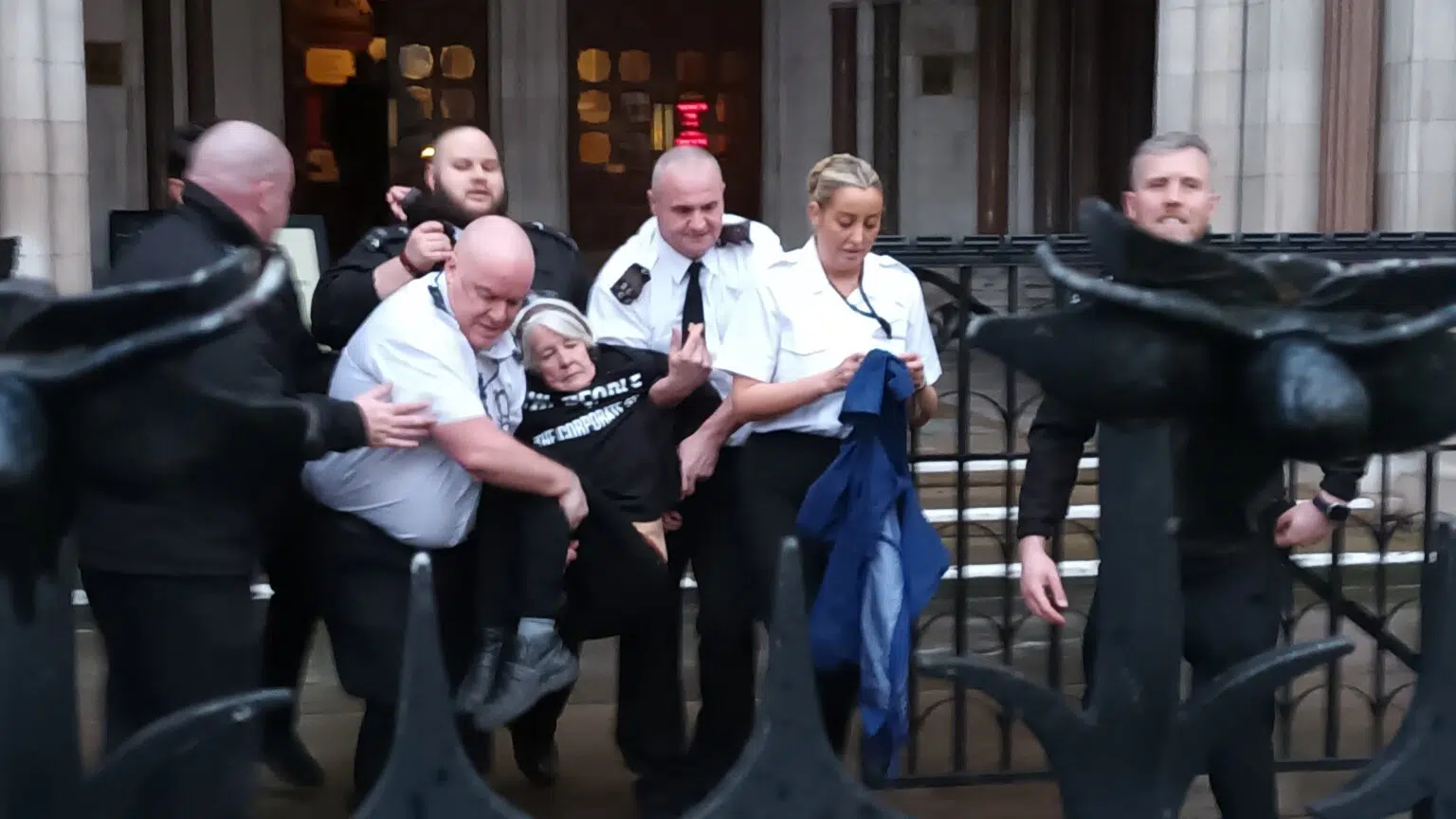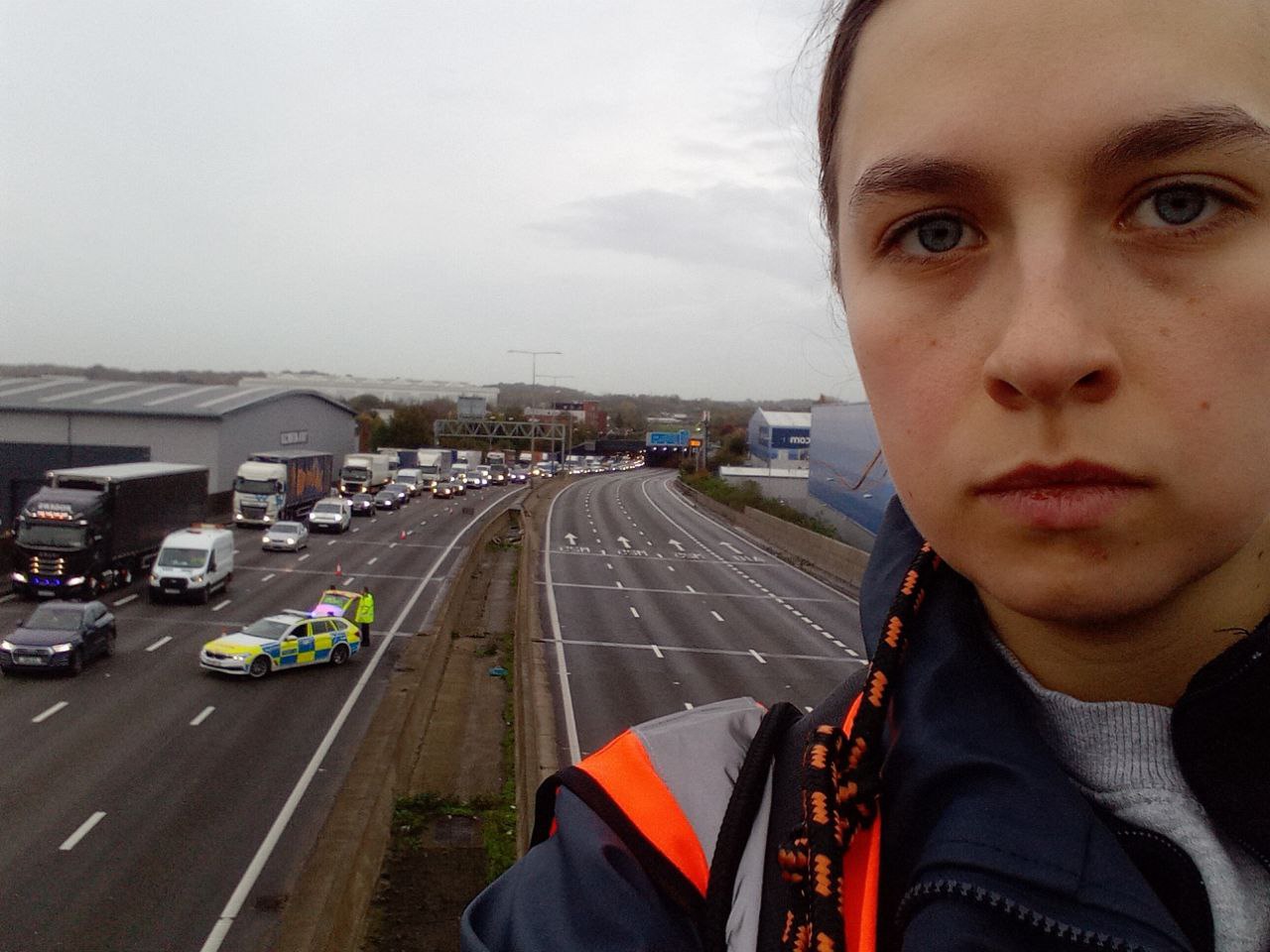Court of Appeal Rules Climate Crisis A Matter of ‘Opinion’
Original article by Tim Crosland republished from DeSmog.
When environmental defenders are tried in future they will be barred from giving evidence of climate impacts to the jury to explain their motives, writes Tim Crosland, director of climate justice charity Plan B Earth.

The Court of Appeal this week delivered another blow to the rights of climate activists to defend themselves in court.
The case centred on a jury’s decision to acquit a group of activists last year after hearing evidence of the consequences of climate breakdown as part of the defence.
It was one of a number of “not guilty” verdicts in similar cases, which showed how seriously juries take such evidence – as long as they are allowed to hear it.
For the climate movement, It was a major boost to see that the public, in the form of juries, was on its side.
But on Monday, following an appeal by Attorney General Victoria Prentis, Lady Justice Carr delivered a ruling to the effect that the juries should not be allowed to hear that evidence in the future.
What this amounts to is that from now on, when environmental defenders are tried for criminal damage in the future, they will no longer be able to give climate impacts as evidence to explain their motives.
‘Show Trials’
This defence was one of the last available to activists in an increasingly hostile climate that has seen the UK, under Rishi Sunak’s administration, dish out some of the most punitive sentencing for peaceful protest in recent history.
The implications are grave. From now on, we will see jury trials turn into show trials, in which the defendants are banned from explaining to the jury their principled motivation for taking action.
Lady Justice Carr’s ruling was made even though the relevant legislation (the Criminal Damage Act of 1971) expressly provides for a jury to take into account the “circumstances” of environmentalists’ action.
The key question here is what counts as the “circumstances” of criminal damage, which is often the crime of which peaceful protestors stand accused. That might take the form of causing damage to property with graffiti, say by spray-painting #ShellKnows onto the oil company’s headquarters.
In this example, climate activists would argue they do this in order to hold those responsible for climate breakdown – and that the message serves to highlight the company’s decades-long knowledge and obfuscation of the impacts of fossil fuels on global heating.
The legal ‘logic’ of the new ruling is that “circumstances” refers to objective matters and therefore excludes a defendant’s beliefs. In the words of Lady Justice Carr, who read out the ruling of the court:
“The circumstances would not include the political or philosophical beliefs of the person causing the damage … Evidence from the defendant about the facts or effects of climate change would be inadmissible.”
The flaw in this logic is obvious. The climate crisis is not a matter of belief. It is a terrifying and objective reality. Not just according to scientists or the British parliament, but as evidenced by the well-documented destruction and mass loss of life that is already occurring across Europe and around the world.
Lady Justice Carr might try explaining that the climate crisis is all in their minds to the UK home-owners, whose properties are now uninsurable due to repeat flooding, or the mothers whose children’s bodies washed up on a Libyan shore after dams collapsed in the wake of heavy rains.
Sadly, this ruling, which is based on such obviously flawed reasoning, was widely predicted.
That’s because the ruling perpetuates an antagonism within the justice British system that has become impossible to ignore.
‘Embarrassment to the State’
On the one hand you have the juries, who represent our communities. They keep acquitting environmental defenders when they hear the full story.
And then you have some judges, paid by the state, who are taking increasingly bizarre measures to prevent the juries from giving not guilty verdicts (Judge Silas Reid has even banned the use of the words ‘climate change’ in court proceedings).
In February 2023, a jury acquitted campaigners who had splashed pink paint over Conservative and Labour Party HQs. In October, another acquitted a group who sprayed the Treasury with fake blood; and in November, yet another acquitted the HSBC 9, who broke windows to protest the bank’s £80 billion investments in fossil fuels since the Paris Agreement.
Such jury acquittals come as an embarrassment to the state. Since juries are composed of randomly selected members of the public, they expose a media-constructed fiction. The public doesn’t want the government to get tough on those taking measures against climate breakdown, they want it to take measures to stop climate breakdown.
As long as juries are allowed to hear evidence about a) the extreme danger of the climate crisis, b) the government’s systematic failure to follow the pathways that science dictates, and c) the efficacy of nonviolent direct action, it follows that those activists who are acting on the science are acquitted.
The British legal system, however, seems increasingly determined to prevent juries hearing the full facts. Judge Silas Reid has not only banned the words, he has sent people to prison simply for saying “climate change”.
At the end of February, almost as if he’d been tipped off on the Court of Appeal’s likely ruling, he used his office to cast doubt on the objective reality of the climate crisis:
“The circumstances of the damage do not include any climate crisis which may or may not exist in the world at the moment… Whether climate change is as dangerous as each of the defendants may clearly and honestly believe or is not, is irrelevant and does not form any part of the circumstances of the damage.”
Reid then threatened the jury with criminal charges if they applied their conscience to the case.
But such oppressive rulings are backfiring. The public, as evidenced by jury acquittals, knows that the climate crisis is real and urgent. When courts suggest otherwise the legal system loses public support, undermining the social contract and the rule of law.
Last year hundreds of people demonstrated outside Crown Courts across England and Wales in solidarity with Trudi Warner, who was arrested for holding a sign outside court that explained the right of juries to acquit a defendant as a matter of conscience. Many actively invited the Attorney General to prosecute them for contempt of court.
In February, more than a hundred members of the public staged a ‘peaceful makeover’ of the Royal Courts of Justice, conducting a lawful assembly into the courts’ erosion of democratic freedoms, until they were forcefully ejected by court security.
For as long as judges believe they can rule away our collective desire to live and to protect those we love, the situation will only escalate.
Tim Crosland is a former government lawyer and director of the climate justice charity Plan B.Earth.
Original article by Tim Crosland republished from DeSmog.
dizzy: The climate crisis is of course a matter of established fact. 2023 is the warmest year ever, climate records are getting broken monthly, they’ll be getting broken daily again in the summer. Capitalism has destroyed the climate and intends to destroy it more, fossil fool companies are pursuing more oil and gas extraction ignoring the established fact that it’s destroying the climate – so that rich cnuts get richer. Courts are supposedly independent, impartial and separate from the state instead of clearly part of it.
7.30am Equinox update: It’s a totally irrational denial of reality mirroring Rishi Sunak UK government’s own legislating that black is white, up is down, in is out. There’s a psychological term – reaction formation – that applies. The problem is that judges are meant to make wise, considered decisions and here they are instead behaving totally irrationally.

